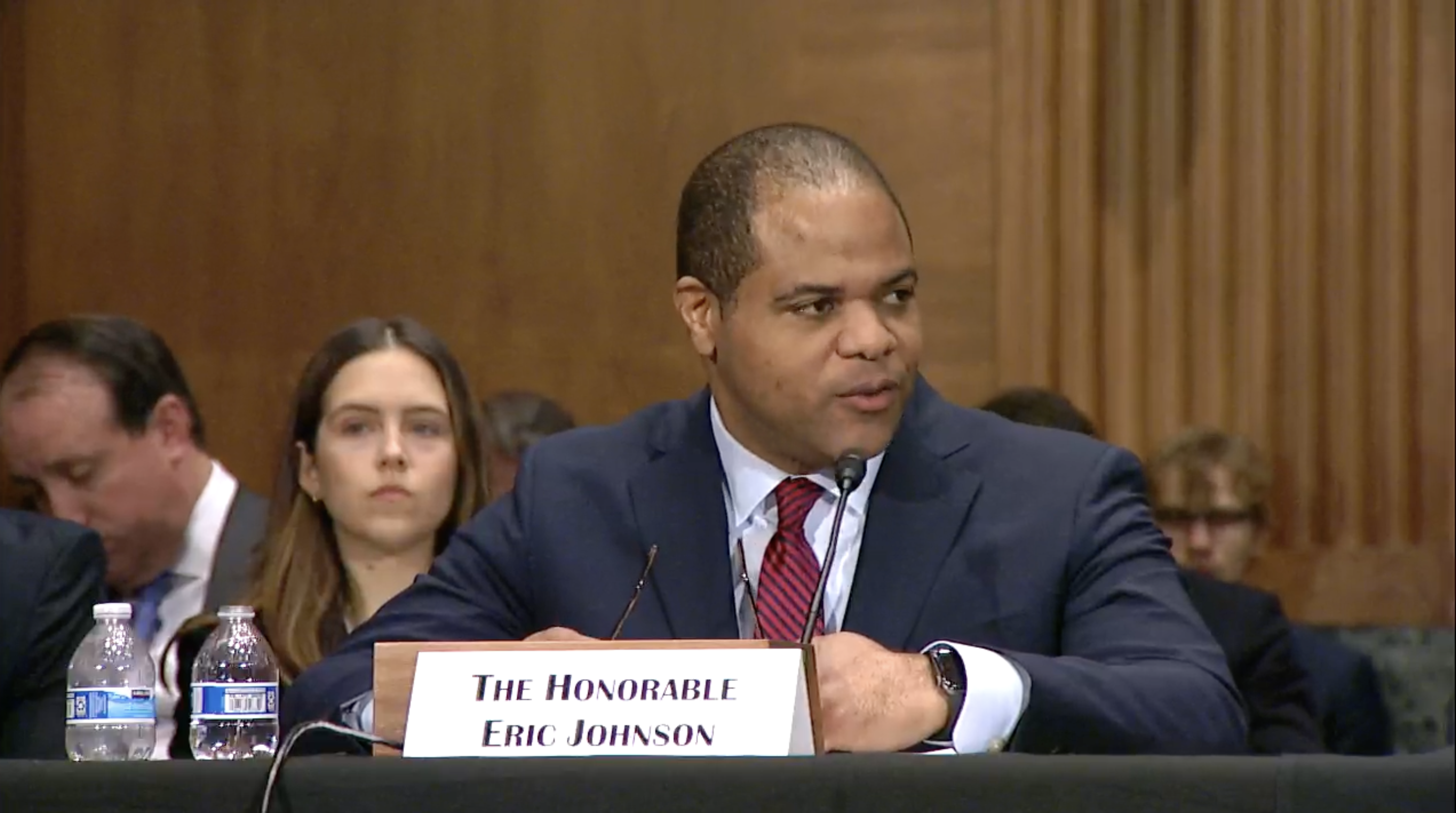
U.S. Senate

Audio By Carbonatix
The Dallas City Council is celebrating spring break, and a few jet-setting members of the council horseshoe are using the hiatus to discuss affordable housing elsewhere.
Earlier this week, City Council member Jesse Moreno appeared in Austin to speak against a bill under discussion in the state Senate Committee on Local Government that would allow accessory dwelling units by right statewide. On Wednesday, Dallas Mayor Eric Johnson testified before the U.S. Senate Committee on Banking, Housing, and Urban Affairs in Washington to provide comment on how legislators can help lessen the red tape ensnaring affordable housing development.
Lawmakers are working on the national, state and local levels to address the higher mortgage rates and rent prices plaguing Americans alongside record levels of homelessness. Here are what two local leaders had to say about Dallas and Texas’ path forward in addressing the affordable housing crisis.
Build, Baby, (Privately) Build
The Senate Committee on Banking, Housing and Urban Affairs, chaired by Republican Tim Scott of South Carolina, is considering legislation deregulating development to build more housing nationally. Johnson, the only elected official called to address the committee, was one of four witnesses at Wednesday’s open session meeting.
In his opening remarks, Johnson acknowledged Dallas’ gains in fighting veteran homelessness. Still, he urged the committee not to conflate the issue of affordable housing with that of chronic homelessness. The attention given to chronic homelessness in housing discussions “stands in the way of real progress” because the rate of mental illness and substance addiction within the chronically homeless community makes it a public health issue rather than a housing problem, Johnson said.
I am honored to have testified before the U.S. Senate Banking Committee this morning. Thank you, @SenatorTimScott, for the invitation. Housing affordability is a major issue nationwide, but the best solution isn’t more government intervention-it’s cutting red tape, streamlining… pic.twitter.com/3SnNS1HnAY
— Mayor Eric L. Johnson (@Johnson4Dallas) March 12, 2025
Johnson also encouraged the committee to consider housing affordability through the private sector housing market lens. He said he “philosophically disagrees” with those who set out to build housing marketed explicitly as affordable. Instead, the mayor favored a “supply and demand” analysis. He advocated for eliminating red tape that could bar developers from building housing targeted at all levels of the socioeconomic spectrum.
“The only thing that works long term, I truly believe at this point, is to have a ‘build, baby, build’ attitude towards housing,” Johnson said. “I think that the approach we need to take is more market-based and that unleashes the potential of the private sector to build more on our unused land, which there’s a lot of in Dallas.”
Johnson also rebuffed a question from Sen. Angela Alsobrooks, a Democrat from Maryland, who asked the mayor about the potential effects defunding the Department of Housing and Urban Development’s HOME Investment Partnerships Program would have on Dallas. Millions of HUD dollars meant to help build affordable housing developments nationally are currently in flux due to intervention by Elon Musk’s Department of Government Efficiency.
While HOME program funds given to Dallas have resulted in some increase in the housing stock offered to those on the lower end of the socioeconomic spectrum, Johnson said, the program isn’t doing enough to solve a broader gap in the housing market.
“We have to force ourselves to get out of this box of only thinking about housing affordability in terms of these federal programs and how much more money we can put into them, and how many more people we can serve, and start thinking about how to have wholesale movements along the supply curve,” Johnson said. “I don’t think there’s a source other than the private sector to do it. I would tell you if I really believed the government could do it, but I don’t think they can.”
At the end of the hearing, Scott said he anticipates legislation based on the testimonies shared being put on President Donald Trump’s desk “this year.”
Slowing The Roll on Accessory Dwelling Units
In Austin, the state Senate Committee on Local Government convened on Monday to discuss an array of housing propositions, including S.B. 673, a bill that would allow accessory dwelling units (ADUs) by right across residential zoning statewide.
ADUs, also called mother-in-law suites or granny flats, have been extensively debated in Dallas’ local land use discussions because of the relationship between zoning type and short-term rentals. Proponents of the quaint backyard apartments say they offer the affordable housing density solution Dallas needs. Those who oppose ADUs warn of congested street parking or the units becoming short-term rentals.
Some on the City Council have supported allowing accessory dwelling units “by right.” The Legislature considered a bill similar to S.B. 673 in 2023 but declined to pass it. Moreno spoke against the bill during the public hearing and encouraged the lawmakers to leave zoning issues to local leaders.
“While the city supports additional affordable housing options and moving barriers to growth, S.B. 673 would strip local governments of their ability to manage growth and development effectively,” Moreno said. “Local governments are the closest to the communities in which ADUs may exist, and therefore best positioned to allow and regulate them in each neighborhood.”
Moreno pointed to a recent zoning overlay approved by the city that will allow ADUs by right in the Oak Cliff neighborhood of Jimtown as an example of the city’s interest in pursuing the units as a housing solution on a neighborhood-by-neighborhood basis. Following the public hearing, S.B. 673 was left pending in committee.